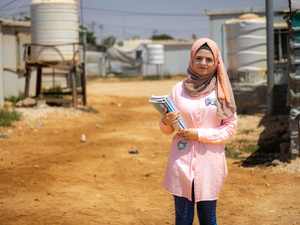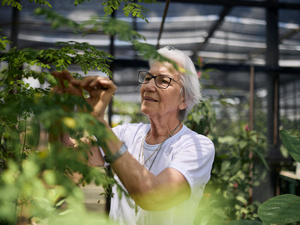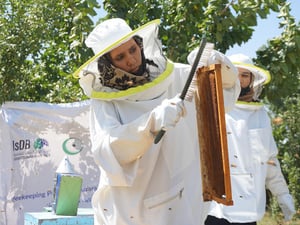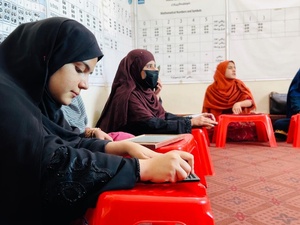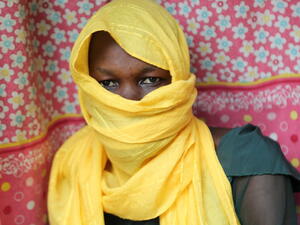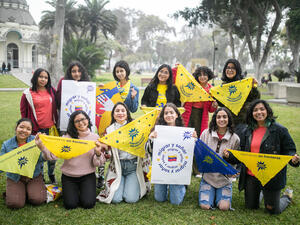We are terrified to go home, Darfur women tell Chamberlin
We are terrified to go home, Darfur women tell Chamberlin
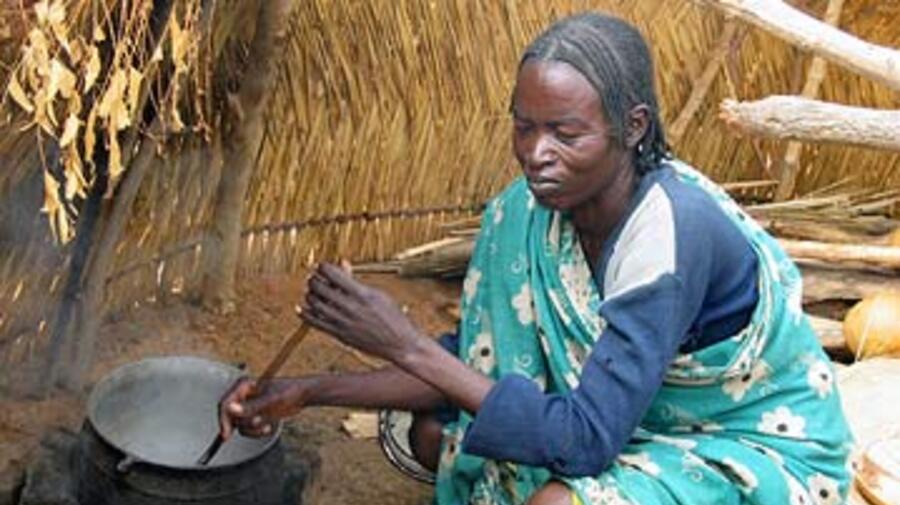
Security and food are major concerns for displaced women in Darfur, such as this woman struggling to feed her family of six in a West Darfur camp.
ZALINGI, Sudan, April 19 (UNHCR) - Darfur women who said they were chased from their villages by Janjaweed militia told visiting Acting High Commissioner Wendy Chamberlin on Tuesday that they were terrified to go home anytime soon.
In a women's centre in El Hamadya camp for displaced people, some 50 women told her they don't even feel safe inside the camp.
"This is why we've just opened an office here in Zalingi, to find a way to make it safe in the camp," Chamberlin said. The Acting High Commissioner was on her second day of a five-day mission to Sudan and Chad. El Hamadya is one of four camps in Zalingi, in Sudan's West Darfur state, that together house nearly 63,000 displaced people. They have totally swamped the town's original population of about 16,000.
When the women receive donations of plastic sheets and tents, armed men come into the camp in the middle of the night and steal the goods, the women said.
"Midnight - that's when the AU is not there, "said Chamberlin, referring to the African Union troops who are spread throughout Darfur - the size of France - to provide a measure of safety for civilians traumatised by the two-year conflict.
"We in the UN refugee agency know protection means presence," Chamberlin said. "Unfortunately, the AU, we and the NGOs are not in the camps all the time."
UNHCR has gotten the AU to send soldiers to protect women from rape when they leave the camp to collect firewood. Still, the women told Chamberlin that security was their top concern along with food and education for their children.
When Chamberlin asked the women if they feel safe to go home to their villages, they replied loudly and unanimously, "La," - No in Arabic - with dramatic negative hand gestures.
About 25 of the 50 women said they had lost a husband or male relative to Janjaweed attacks. "We will stay here in the camp for 20 years until they collect the guns from the Arab troops," vowed one woman.
The women ululated and broke into song and dance when Chamberlin entered the makeshift thatched women's centre. But the meeting quickly turned serious as they told of their concerns about what would happen if they go back home.
"There are people who are armed and they kill us, they rape us and they rob us. They are the Janjaweed," one woman said.
On the one-hour helicopter flight to Zalingi, Chamberlin passed over numerous burnt-out villages in the barren desert which she said "graphically illustrate why these people left their villages and sought safety and security in the camps."
By Kitty McKinsey in Zalingi, Sudan

